41 start with U start with U
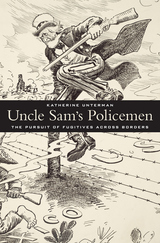
Extraordinary rendition—the practice of abducting criminal suspects in locations around the world—has been criticized as an unprecedented expansion of U.S. police powers. But America’s aggressive pursuit of fugitives beyond its borders far predates the global war on terror. Uncle Sam’s Policemen investigates the history of international manhunts, arguing that the extension of U.S. law enforcement into foreign jurisdictions at the turn of the twentieth century forms an important chapter in the story of American empire.
In the late 1800s, expanding networks of railroads and steamships made it increasingly easy for criminals to evade justice. Recognizing that domestic law and order depended on projecting legal authority abroad, President Theodore Roosevelt declared in 1903 that the United States would “leave no place on earth” for criminals to hide. Charting the rapid growth of extradition law, Katherine Unterman shows that the United States had fifty-eight treaties with thirty-six nations by 1900—more than any other country. American diplomats put pressure on countries that served as extradition havens, particularly in Latin America, and cloak-and-dagger tactics such as the kidnapping of fugitives by Pinkerton detectives were fair game—a practice explicitly condoned by the U.S. Supreme Court.
The most wanted fugitives of this period were not anarchists and political agitators but embezzlers and defrauders—criminals who threatened the emerging corporate capitalist order. By the early twentieth century, the long arm of American law stretched around the globe, creating an informal empire that complemented both military and economic might.
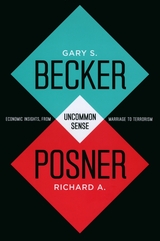
On December 5, 2004, the still-developing blogosphere took one of its biggest steps toward mainstream credibility, as Nobel Prize–winning economist Gary S. Becker and renowned jurist and legal scholar Richard A. Posner announced the formation of the Becker-Posner Blog.
In no time, the blog had established a wide readership and reputation as a reliable source of lively, thought-provoking commentary on current events, its pithy and profound weekly essays highlighting the value of economic reasoning when applied to unexpected topics. Uncommon Sense gathers the most important and innovative entries from the blog, arranged by topic, along with updates and even reconsiderations when subsequent events have shed new light on a question. Whether it’s Posner making the economic case for the legalization of gay marriage, Becker arguing in favor of the sale of human organs for transplant, or even the pair of scholars vigorously disagreeing about the utility of collective punishment, the writing is always clear, the interplay energetic, and the resulting discussion deeply informed and intellectually substantial.
To have a single thinker of the stature of a Becker or Posner addressing questions of this nature would make for fascinating reading; to have both, writing and responding to each other, is an exceptionally rare treat. With Uncommon Sense, they invite the adventurous reader to join them on a whirlwind intellectual journey. All they ask is that you leave your preconceptions behind.
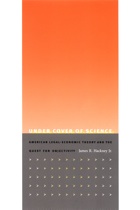
Hackney demonstrates how legal-economic thought has been affected by the prevailing philosophical ideas about objectivity, which have in turn evolved in response to groundbreaking scientific discoveries. Thus Hackney’s narrative is a history not only of law and economics but also of select strands of philosophy and science. He traces forward from the seventeenth-century the interaction of legal thinking and economic analysis with ideas about the attainability of certitude. The principal legal-economic theories Hackney examines are those that emerged from classical legal thought, legal realism, law and neoclassical economics, and critical legal studies. He links these theories respectively to formalism, pragmatism, the analytic turn, and neopragmatism/postmodernism, and he explains how each of these schools of philosophical thought was influenced by specific scientific discoveries: Newtonian physics, Darwin’s theory of evolution, Einstein’s theories of relativity, and quantum mechanics. Under Cover of Science challenges claims that the contemporary law and economics movement is an objective endeavor by historicizing ideas about certitude and empiricism and their relation to legal-economic thought.
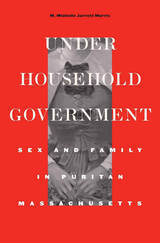
Seventeenth-century New Englanders were not as busy policing their neighbors’ behavior as Nathaniel Hawthorne or many historians of early America would have us believe. Keeping their own households in line occupied too much of their time. Under Household Government reveals the extent to which family members took on the role of watchdog in matters of sexual indiscretion.
In a society where one’s sister’s husband’s brother’s wife was referred to as “sister,” kinship networks could be immense. When out-of-wedlock pregnancies, paternity suits, and infidelity resulted in legal cases, courtrooms became battlegrounds for warring clans. Families flooded the courts with testimony, sometimes resorting to slander and jury-tampering to defend their kin. Even slaves merited defense as household members—and as valuable property. Servants, on the other hand, could expect to be cast out and left to fend for themselves.
As she elaborates the ways family policing undermined the administration of justice, M. Michelle Jarrett Morris shows how ordinary colonists understood sexual, marital, and familial relationships. Long-buried tales are resurrected here, such as that of Thomas Wilkinson’s (unsuccessful) attempt to exchange cheese for sex with Mary Toothaker, and the discovery of a headless baby along the shore of Boston’s Mill Pond. The Puritans that we meet in Morris’s account are not the cardboard caricatures of myth, but are rendered with both skill and sensitivity. Their stories of love, sex, and betrayal allow us to understand anew the depth and complexity of family life in early New England.
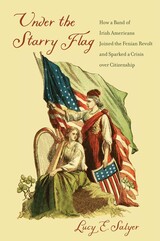
Winner of the Myrna F. Bernath Book Award
“A stunning accomplishment…As the Trump administration works to expatriate naturalized U.S. citizens, understanding the history of individual rights and state power at the heart of Under the Starry Flag could not be more important.”
—Passport
“A brilliant piece of historical writing as well as a real page-turner. Salyer seamlessly integrates analysis of big, complicated historical questions—allegiance, naturalization, citizenship, politics, diplomacy, race, and gender—into a gripping narrative.”
—Kevin Kenny, author of The American Irish
In 1867 forty Irish American freedom fighters, outfitted with guns and ammunition, sailed to Ireland to join the effort to end British rule. They were arrested for treason as soon as they landed. The Fenians, as they were called, claimed to be American citizens, but British authorities insisted that they remained British subjects. Following the Civil War, the Fenian crisis dramatized the question of whether citizenship should be considered an inalienable right.
This gripping legal saga, a prelude to today’s immigration battles, raises important questions about immigration, citizenship, and who deserves to be protected by the law.
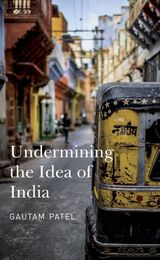
“India is improbable. By any measure of logic or reason, it should not be. Not in this form. And yet it is.”
With this provocation, Justice Gautam Patel of the Bombay High Court sketches the exoskeleton of this improbability—the “Constitutional” idea of India. Justice Patel argues that the devolution of power is necessary for the survival of any liberal democracy, maintaining the idea that “the right to choose one’s own government is the right to dissent.” Decrying the portrayal of politics as sport, Patel elucidates the strategies and tactics used by “nimble” governments to enforce a culture of “broad-spectrum illiberalism.” A champion of transparency in the judiciary, Patel argues that the Internet and the judiciary must serve as beacons in this age of precarity. A timely text that comes at a juncture where liberal democracies across the world are facing existential threats, Undermining the Idea of India is a searing manifesto for our troubled times.
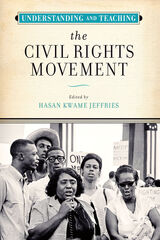
Books in the popular Harvey Goldberg Series provide high school and introductory college-level instructors with ample resources and strategies for better engaging students in critical, thought-provoking topics. By allowing for the implementation of a more nuanced curriculum, this is history instruction at its best. Understanding and Teaching the Civil Rights Movement will transform how the United States civil rights movement is taught.
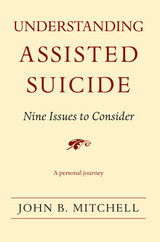
Assisted suicide remains one of the most emotionally charged and controversial topics—and the issue isn’t going away any time soon. As the baby boomer generation ages, many of us will watch as our parents—and ourselves—grow older, and wonder at the decisions that lie ahead.
Understanding Assisted Suicide provides both a fresh take on this important topic and the framework for intelligent participation in the discussion. Uniquely, the author frames the issue using his own experience watching both his parents die, which led him to ask fundamental questions about death, dying, religion, and the role of medicine and technology in alleviating human suffering.
In concerns about assisted suicide, each person’s “big picture” has largely been created out of picking and choosing from nine separate snapshot albums.
Understanding this offers a perspective for quickly determining the sources of another’s opinion on assisted suicide, as well as the issues they are not considering. Most importantly, Understanding Assisted Suicide offers a clear, easy-to-traverse landscape over which those who are sincerely looking for their own answers can navigate. The “nine-issue structure” allows both careful exploration of separate issues and a view of the full spectrum of ideas involved.
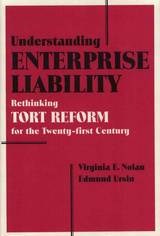
In recent years critics have assailed the cost, inefficiency, and unfairness of American tort law, including products liability and medical malpractice. Yet victims of accidental injury who look to the tort system for deserved compensation often find it a formidable obstacle. Those who seek to reform tort law find legislatures, particularly the United States Congress, paralyzed by the clash of powerful special interest groups.
Understanding Enterprise Liability sheds new light on the raging tort reform debate by challenging its fundamental assumptions. Offering historical insights and fresh perspectives on the politics and possibilities for sensible reform, Virginia Nolan and Edmund Ursin pragmatically assess alternative routes to a workable, balanced, and equitable system of compensation for personal injury. They offer a specific proposal, based on the precedent of strict products liability that incorporates the insights of no-fault compensation plan scholarship to create an enterprise liability doctrine that should appeal to courts and to tort reformers.
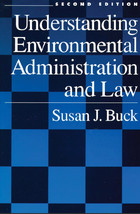
More than any other field of public administration, environmental administration is defined by its legal content. Federal legislation has a direct and immediate impact on state and federal bureaucrats, and citizen groups must constantly adjust to changing standards for environmental protection and regulation.
In Understanding Environmental Administration and Law, Susan J. Buck examines the use of environmental law by exploring the policy process through which such law is made, the political environment in which it is applied, and the statutory and case laws that are critical to working within the regulatory system. The book provides an analytic framework for the legal context of environmental administration and familiarizes readers with the development and implementation of the federal regulatory structure.
First published in 1991, this revised and expanded edition includes new material on:
- the continuing evolution of environmentalism in the United States
- federalism and bureaucratic decision making within the context of the American legal system
- citizen suits, counter suits, and the increasingly restrictive perspective of the federal judiciary toward standing
- the property rights movement
- the impact of political changes on policy development

More than any other field of public administration, environmental administration is defined by its legal content. Federal legislation has a direct and immediate impact on state and federal bureaucrats, and citizen groups must constantly adjust to changing standards for environmental protection and regulation.
In Understanding Environmental Administration and Law, Susan J. Buck examines the use of environmental law by exploring the policy process through which such law is made, the political environment in which it is applied, and the statutory and case laws that are critical to working within the regulatory system. The book provides an analytic framework for the legal context of environmental administration and familiarizes readers with the development and implementation of the federal regulatory structure.
A revised and expanded edition of this book was published by Island Press in 1996.
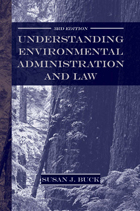
Understanding Environmental Administration and Law provides an engaging, introductory overview of environmental policy. Author Susan J. Buck explores the process through which policy is made, the political environment in which it is applied, and the statutory and case laws that are critical to working within the regulatory system. This revised and expanded third edition adds case studies that help bring the subject to life and includes new material on:
- the Bush Administration and its approach to administering environmental laws
- the continuing evolution of environmentalism and the changing role of environmental regulation in the United States
- the development and implementation of environmental agreements at the international level
- the impacts and implications of globalization
Understanding Environmental Administration and Law provides a framework for understanding the law as a managerial tool.

Privacy is one of the most important concepts of our time, yet it is also one of the most elusive. As rapidly changing technology makes information increasingly available, scholars, activists, and policymakers have struggled to define privacy, with many conceding that the task is virtually impossible.
In this concise and lucid book, Daniel J. Solove offers a comprehensive overview of the difficulties involved in discussions of privacy and ultimately provides a provocative resolution. He argues that no single definition can be workable, but rather that there are multiple forms of privacy, related to one another by family resemblances. His theory bridges cultural differences and addresses historical changes in views on privacy. Drawing on a broad array of interdisciplinary sources, Solove sets forth a framework for understanding privacy that provides clear, practical guidance for engaging with relevant issues.
Understanding Privacy will be an essential introduction to long-standing debates and an invaluable resource for crafting laws and policies about surveillance, data mining, identity theft, state involvement in reproductive and marital decisions, and other pressing contemporary matters concerning privacy.
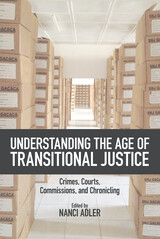
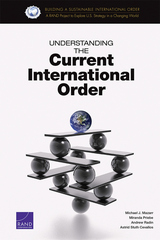
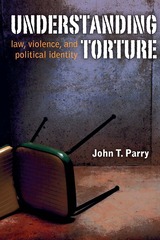
"John Parry's Understanding Torture is an important contribution to our understanding of how torture fits within the practices and beliefs of the modern state. His juxtaposition of the often indeterminate nature of the law of torture with the very specific state practices of torture is both startling and revealing."
---Paul W. Kahn is Robert W. Winner Professor of Law and the Humanities at Yale Law School and author of Sacred Violence
"Parry is effective in building, deploying, and supporting his argument . . . that the law does not provide effective protections against torture, but also that the law is in itself constitutive of a political order in which torture is employed to create---and to destroy or re-create---political identities.”
---Margaret Satterthwaite, Faculty Director of the Center for Human Rights and Global Justice and Associate Professor of Clinical Law, NYU School of Law
"A beautifully crafted, convincingly argued book that does not shy away from addressing the legal and ethical complexities of torture in the modern world. In a field that all too often produces simple or superficial responses to what has become an increasingly challenging issue, Understanding Torture stands out as a sophisticated and intellectually responsible work."
---Ruth Miller, Associate Professor of History, University of Massachusetts, Boston
Creating a separate category for an intentionally narrow set of practices labeled and banned as torture, Parry argues, serves to normalize and legitimate the remaining practices that are "not torture." Consequently, we must question the hope that law can play an important role in regulating state violence.
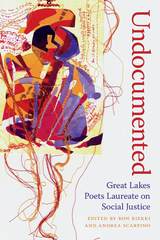
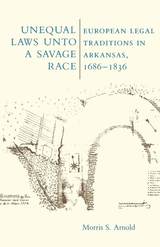
Partly because its colonial settlements were tiny, remote, and inconsequential, the early history of Arkansas has been almost entirely neglected. Even Arkansas Post, the principal eighteenth-century settlement, served mainly as a temporary place of residence for trappers and voyageurs. It was also an entrepot for travelers on the Mississippi—a place to be while on the way elsewhere. Only a very few inhabitants, true agricultural settlers, ever established themselves a or around the Post.
For most of the eighteenth century, Arkansas’s non-Indian population was less than one hundred, and never much exceeded five or six hundred. Its European residents of that era, mostly French, have left virtually no physical trace: the oldest buildings and the oldest marked graves in the state date from the 1820s. Drawing on original French and Spanish archival sources, Morris Arnold chronicles for the first time the legal institutions of colonial Arkansas, the attitude of its population towards European legal ideas as were current in Arkansas when Louisiana was transferred to the United States in 1803. Because he views the clash of legal traditions in the upper reaches of the Jefferson’s Louisiana as part of a more general cultural conflict, Arnold closely examines the social and economic characteristics of Arkansas’s early residents in order to explain why, following the American takeover, the common law was introduced into Arkansas with such relative ease.
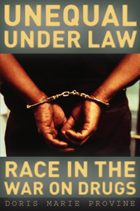
Doris Marie Provine’s engaging analysis traces the history of race in anti-drug efforts from the temperance movement of the early 1900s to the crack scare of the late twentieth century, showing how campaigns to criminalize drug use have always conjured images of feared minorities. Explaining how alarm over a threatening black drug trade fueled support in the 1980s for a mandatory minimum sentencing scheme of unprecedented severity, Provine contends that while our drug laws may no longer be racist by design, they remain racist in design. Moreover, their racial origins have long been ignored by every branch of government. This dangerous denial threatens our constitutional guarantee of equal protection of law and mutes a much-needed national discussion about institutionalized racism—a discussion that Unequal under Law promises to initiate.
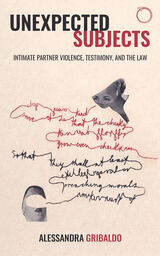
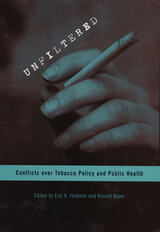
Tobacco, among the most popular consumer products of the twentieth century, is under attack. Once a behavior that knew no social bounds, cigarette smoking has been transformed into an activity that reflects sharp differences in social status.
Unfiltered tells the story of how anti-smoking advocates, public health professionals, bureaucrats, and tobacco corporations have clashed over smoking regulation. The nations discussed in this book--Australia, Canada, Denmark, France, Germany, Japan, the United Kingdom, and the United States--restrict tobacco advertising, tax tobacco products, and limit where smoking is permitted. Each is also struggling to shape a tobacco policy that ensures corporate accountability, protects individual liberty, and asserts the state's public health power.
Unfiltered offers a comparative perspective on legal, political, and social conflicts over tobacco control. The book makes a unique contribution to our understanding of how scientific evidence, global health advocacy, individual risk assessments, and governmental interests intersect in the crafting of tobacco policy. It features national case studies and cross-cultural essays by experts in health policy, law, political science, history, and sociology. The lessons in Unfiltered are crucial to all who seek to understand and influence tobacco policy and reduce tobacco-related mortality worldwide.
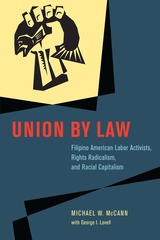
Union by Law analyzes the broader social and legal history of Filipino American workers’ rights-based struggles, culminating in the devastating landmark Supreme Court ruling, Wards Cove Packing Co. v. Atonio (1989). Organized chronologically, the book begins with the US invasion of the Philippines and the imposition of colonial rule at the dawn of the twentieth century. The narrative then follows the migration of Filipino workers to the United States, where they mobilized for many decades within and against the injustices of American racial capitalist empire that the Wards Cove majority willfully ignored in rejecting their longstanding claims. This racial innocence in turn rationalized judicial reconstruction of official civil rights law in ways that significantly increased the obstacles for all workers seeking remedies for institutionalized racism and sexism. A reclamation of a long legacy of racial capitalist domination over Filipinos and other low-wage or unpaid migrant workers, Union by Law also tells a story of noble aspirational struggles for human rights over several generations and of the many ways that law was mobilized both to enforce and to challenge race, class, and gender hierarchy at work.
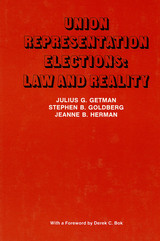
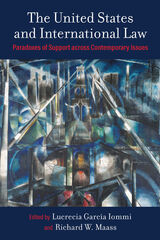
The United States spearheaded the creation of many international organizations and treaties after World War II and maintains a strong record of compliance across several issue areas, yet it also refuses to ratify major international conventions like the UN Convention on the Law of the Sea and the Convention on the Elimination of All Forms of Discrimination Against Women. Why does the U.S. often seem to support international law in one way while neglecting or even violating it in another?
The United States and International Law: Paradoxes of Support across Contemporary Issues analyzes the seemingly inconsistent U.S. relationship with international law by identifying five types of state support for international law: leadership, consent, internalization, compliance, and enforcement. Each follows different logics and entails unique costs and incentives. Accordingly, the fact that a state engages in one form of support does not presuppose that it will do so across the board. This volume examines how and why the U.S. has engaged in each form of support across twelve issue areas that are central to 20th- and 21st-century U.S. foreign policy: conquest, world courts, war, nuclear proliferation, trade, human rights, war crimes, torture, targeted killing, maritime law, the environment, and cybersecurity. In addition to offering rich substantive discussions of U.S. foreign policy, their findings reveal patterns across the U.S. relationship with international law that shed light on behavior that often seems paradoxical at best, hypocritical at worst. The results help us understand why the United States engages with international law as it does, the legacies of the Trump administration, and what we should expect from the United States under the Biden administration and beyond.

Adopted by the United Nations General Assembly in 1948 in response to the atrocities committed by the Nazis before and during World War II, the Genocide Convention was finally made law by the United States Senate in 1988 contingent upon a series of “conditions”—known as the “Lugar-Helms-Hatch Sovereignty Package”—which, LeBlanc suggests, markedly weakened the convention. Through careful analysis of the bitter debates over ratification, LeBlanc demonstrates that much of the opposition to the convention sprang from fears that it would be used domestically as a tool by groups such as blacks and Native Americans who might hold the U.S. accountable for genocide in matters of race relations.
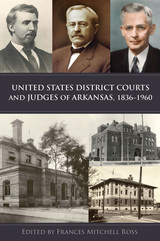
The book begins with statehood and continues with Congress’s decision to expand jurisdiction of the original 1836 District Court of Arkansas to include the vast Indian Territory to the west. The territory’s formidable size and rampant lawlessness brought in an overwhelming number of cases. The situation was only somewhat mitigated in 1851, when Congress split the state into eastern and western districts, which were still served by just one judge who travelled between the two courts.
A new judgeship for the Western District was created in 1871, and new seats for that court were established, but it wasn’t until 1896 that Congress finally ended all jurisdiction of Arkansas’s Western District Court over the Indian Territory.
Contributors to this collection include judges, practicing attorneys, academics, and thoughtful and informed family members who reveal how the judges made decisions on issues involving election laws, taxes, civil rights, railroads, liquor and prohibition, quack medicine, gangsters, bankruptcy, personal injury, the draft and Selective Service, school desegregation, prisons, and more. United States District Courts and Judges of Arkansas, 1836–1960 will be of value to anyone interested in Arkansas history—particularly Arkansas legal and judicial history as it relates to the local and national issues that came before these judges.
This project was supported in part by the United States District Court for the Eastern District of Arkansas and the United States District Court for the Western District of Arkansas.
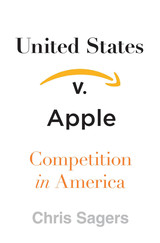
One of the most-followed antitrust cases of recent times—United States v. Apple—reveals an often-missed truth: what Americans most fear is competition itself.
In 2012 the Department of Justice accused Apple and five book publishers of conspiring to fix ebook prices. The evidence overwhelmingly showed an unadorned price-fixing conspiracy that cost consumers hundreds of millions of dollars. Yet before, during, and after the trial millions of Americans sided with the defendants. Pundits on the left and right condemned the government for its decision to sue, decrying Amazon’s market share, railing against a new high-tech economy, and rallying to defend beloved authors and publishers. For many, Amazon was the one that should have been put on trial. But why? One fact went unrecognized and unreckoned with: in practice, Americans have long been ambivalent about competition.
Chris Sagers, a renowned antitrust expert, meticulously pulls apart the misunderstandings and exaggerations that industries as diverse as mom-and-pop grocers and producers of cast-iron sewer pipes have cited to justify colluding to forestall competition. In each of these cases, antitrust law, a time-honored vehicle to promote competition, is put on the defensive. Herein lies the real insight of United States v. Apple. If we desire competition as a policy, we must make peace with its sometimes rough consequences. As bruising as markets in their ordinary operation often seem, letting market forces play out has almost always benefited the consumer. United States v. Apple shows why supporting cases that protect price competition, even when doing so hurts some of us, is crucial if antitrust law is to protect and maintain markets.

Johannes Morsink argues that the 1948 UN Universal Declaration of Human Rights and the human rights movement today are direct descendants of revulsion to the Holocaust and the desire to never let it happen again.
Much recent scholarship about human rights has severed this link between the Holocaust, the Universal Declaration, and contemporary human rights activism in favor of seeing the 1970s as the era of genesis. Morsink forcefully presents his case that the Universal Declaration was indeed a meaningful though underappreciated document for the human rights movement and that the declaration and its significance cannot be divorced from the Holocaust. He reexamines this linkage through the working papers of the commission that drafted the declaration as well as other primary sources.
This work seeks to reset scholarly understandings of the Universal Declaration of Human Rights and the foundations of the contemporary human rights movement.
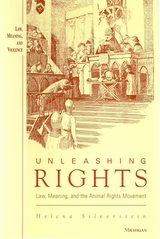
Presented here is an investigation of the legal system through a decentered, cultural approach. Legal languages and practices are viewed as a part of everyday life--constructed, used, and interpreted not only by those who run official legal institutions but also by everyday people with a legal consciousness. Using this approach, the book questions whether the deployment of rights and litigation by animal rights advocates has challenged prevailing legal meaning.
Looking to both the constitutive and instrumental aspects of law, and to how each informs the other, Unleashing Rights finds that the resort to rights and litigation has advanced movement goals and contributed to alternative constructions of legal meaning. The study concludes that despite their many constraints, both rights talk and litigation are powerful resources for those who seek change, especially when used by strategically minded activists.
Unleashing Rights is a book that illustrates the relationship between law, social movement activism, and social change. The book joins the ongoing debate within public law scholarship that is concerned with the effectiveness of legal strategies and languages. The book also speaks to those interested in the general study of social movements and in the particular study of the animal rights movement. With its cultural approach focused on rights language and the construction of meaning, the work will be of interest to the disciplines of law and political science, as well as those who study sociology, anthropology, and philosophy.
Helena Silverstein is F. M. Kirby Assistant Professor of Government and Law, Lafayette College.
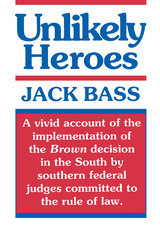
A vivid account of the implementation of the Brown decision in the South by southern federal judges committed to the rule of law.
Bass's unlikely heroes are the federal judges-primarily those on the U.S. Fifth Circuit Court of Appeals-who vigorously and skillfully implemented Brown v. Board of Education in six southern states. The rich profiles show the character of the men who gave up prosperous lives, popularity, and friends to see that the constitutional rights of all citizens were protected.
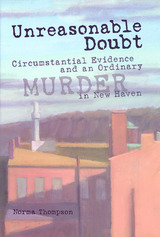
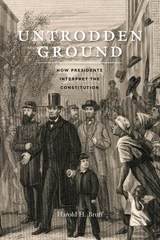
Reviewing the processes taken by all forty-four presidents to form new legal precedents and the constitutional conventions that have developed as a result, Harold H. Bruff shows that the president is both more and less powerful than many suppose. He explores how presidents have been guided by both their predecessors’ and their own interpretations of constitutional text, as well as how they implement policies in ways that statutes do not clearly authorize or forbid. But while executive power has expanded far beyond its original conception, Bruff argues that the modern presidency is appropriately limited by the national political process—their actions are legitimized by the assent of Congress and the American people or rejected through debilitating public outcry, judicial invalidation, reactive legislation, or impeachment. Synthesizing over two hundred years of presidential activity and conflict, this timely book casts new light on executive behavior and the American constitutional system.
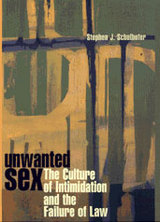
Despite three decades of intense scrutiny and repeated attempts at ambitious reform, our laws against rape and sexual harassment still fail to protect women from sexual overreaching and abuse. What went wrong? In this original, provocative, and enlightening work, Stephen Schulhofer, a distinguished scholar in criminal law, shows the need to refocus our laws against rape and to create a new system of legal safeguards against interference with sexual autonomy.
Our laws provide comprehensive protection for property rights, labor, and other important interests, but sexual autonomy—the right to choose freely whether and when to be sexually intimate with another person—is devalued and ignored. With vivid examples, including stranger assaults, date rapes, and sexual encounters between job supervisors and subordinates, teachers and students, doctors and patients, lawyers and clients, Schulhofer shows that recent reforms of rape and sexual harassment law are overrated and inadequate. From the excessive degree of force necessary for an aggressive action to be defined as rape, to the gray areas in which coercion and exploitation can be used to elicit a false but legally valid “consent,” Schulhofer offers a clear analysis of the limits of current standards. His proposals for a radically different approach hold the promise of genuine respect and effective protection for the sexual autonomy of both women and men. It is an ambitious yet sensible vision, committed to allowing willing partners to seek consensual relationships, while fully protecting each person’s right to refuse sexual encounters that are not genuinely desired.
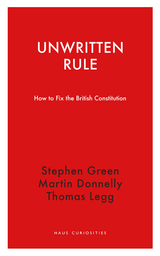
Not since Ireland broke away from the United Kingdom has the British state been so fragile. Northern Ireland now operates under trading rules that are legally separate from the rest of the nation. In Wales, support for independence is running at a historical high, and Scotland is more conscious than ever of its individual identity and has aspirations for a European future. With public trust and confidence in government at record lows, the United Kingdom faces a crisis that can only be repaired by a new constitutional settlement. Unwritten Rule calls for a radical realignment, embracing a federal approach that would accommodate devolution as the best way of bringing about a successful and diverse national life, increasing democratic control over local and national decision-making, and modernizing national political structures.
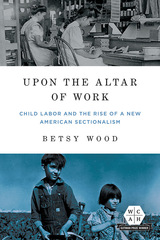
Betsy Wood examines the evolution of ideas about child labor and the on-the-ground politics of the issue against the backdrop of broad developments related to slavery and emancipation, industrial capitalism, moral and social reform, and American politics and religion. Wood explains how the decades-long battle over child labor created enduring political and ideological divisions within capitalist society that divided the gatekeepers of modernity from the cultural warriors who opposed them. Tracing the ideological origins and the politics of the child labor battle over the course of eighty years, this book tells the story of how child labor debates bequeathed an enduring legacy of sectionalist conflict to modern American capitalist society.
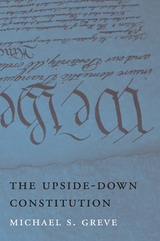
Over the course of the nation’s history, the Constitution has been turned upside-down, Michael Greve argues in this provocative book. The Constitution’s vision of a federalism in which local, state, and federal government compete to satisfy the preferences of individuals has given way to a cooperative, cartelized federalism that enables interest groups to leverage power at every level for their own benefit. Greve traces this inversion from the Constitution’s founding through today, dispelling much received wisdom along the way.
The Upside-Down Constitution shows how federalism’s transformation was a response to states’ demands, not an imposition on them. From the nineteenth-century judicial elaboration of a competitive federal order, to the New Deal transformation, to the contemporary Supreme Court’s impoverished understanding of constitutional structure, and the “devolution” in vogue today, Greve describes a trend that will lead to more government and fiscal profligacy, not less. Taking aim at both the progressive heirs of the New Deal and the vocal originalists of our own time, The Upside-Down Constitution explains why the current fiscal crisis will soon compel a fundamental renegotiation of a new federalism grounded in constitutional principles.

The collection begins with a review of the historical development of housing segregation in these countries, describing current housing conditions, concentration of housing in each country’s leading cities, minority populations and the housing they occupy—specifically public, nonprofit, and owner-occupied dwellings. When focusing on the United States, the contributors assess housing segregation, antisegregation measures, and institutional racism toward blacks in the Midwest and South, and toward Mexican-Americans throughout American cities. Chapters dealing with Western Europe include housing segregation of South Asian and West Indian immigrants in Britain, immigrants in Sweden, Turkish, and Yugoslav “guest workers” in West Germany, and Algerian and other Arab groups in France. The book concludes with discussions of public housing policies; suburban desegregation, resegregation, and integration maintenance programs; specific integration stabilization programs; and desegregation efforts in one specific place.
Contributors. Elizabeth Huttman, Michal Arend, Cihan Arin, Maurice Blanc, Wim Blauw, Ger Mik, Clyde McDaniels, Jürgen Friedrichs, Hannes Alpheis, John M. Goering, Len Gordon, Albert Mayer, Rosemary Helper, Barry V. Johnston, Terry Jones, Valerie Karn, Göran Lindberg, Anna Lisa Lindén, Deborah Phillips, Dennis Keating, Juliet Saltman, Alan Murie
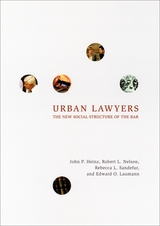
Drawing on extensive interviews with Chicago lawyers, the authors demonstrate how developments in the profession have affected virtually every aspect of the work and careers of urban lawyers-their relationships with clients, job tenure and satisfaction, income, social and political values, networks of professional connections, and patterns of participation in the broader community. Yet despite the dramatic changes, much remains the same. Stratification of income and power based on gender, race, and religious background, for instance, still maintains inequality within the bar.
The authors of Urban Lawyers conclude that organizational priorities will likely determine the future direction of the legal profession. And with this landmark study as their guide, readers will be able to make their own informed predictions.
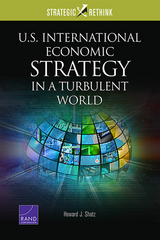
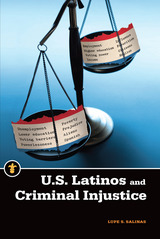
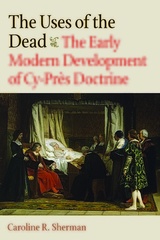
Posthumous gifts, which required no sacrifice during life, were in fact broadly understood by canon lawyers and medieval donors themselves to have at best a very limited relationship to salvation. As a consequence, for much of the Middle Ages the preferred method for resolving impossible or impractical gifts was to try to reach a consensus among all of the interested parties to the gift, including the donor's heirs and the recipients, with the mediation of the local bishop.
When cy-près emerged in the seventeenth century, it cut a charitable gift o from return to the donor's estate in the event of failure. It also gave the interested parties to the gift (heirs, beneficiaries, or trustees) little authority over resolutions to problematic gifts, which were now considered primarily in relationship to the donor's intent—even as the intent was ultimately honored only in its breach. The Uses of the Dead shows how cy-près developed out of controversies over church property, particularly monastic property, and whether it might be legally turned over to fund education, poor relief, or national defense.
Renaissance humanists hoped to make better, more prudent uses of property; the Reformation sought to correct superstitious abuses of property and ultimately tended to prevent donors' heirs from recovering secularized ecclesiastical gifts; and the early modern state attempted to centralize poor relief and charitable efforts under a more rational, centralized supervision. These three factors combined to replace an older equitable ideal with a new equitable rule—one whose use has rapidly expanded in the modern era to allow assorted approximations and judicial redistributions of property.
READERS
Browse our collection.
PUBLISHERS
See BiblioVault's publisher services.
STUDENT SERVICES
Files for college accessibility offices.
UChicago Accessibility Resources
home | accessibility | search | about | contact us
BiblioVault ® 2001 - 2024
The University of Chicago Press









